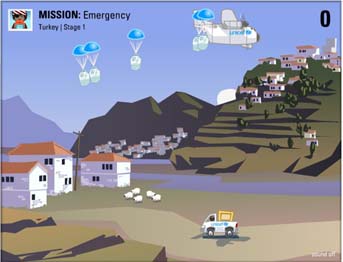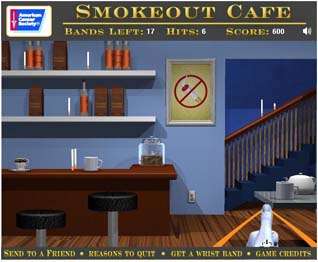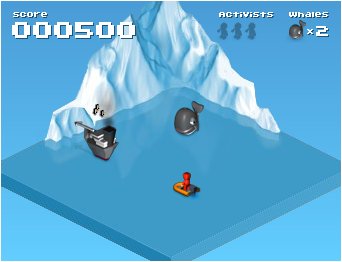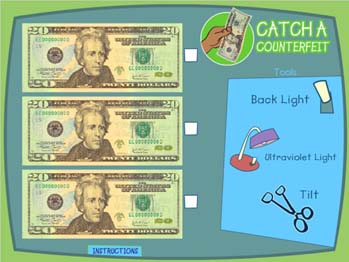There’s a nice piece in today’s NY Times about how Brazil is rejecting Microsoft and striking out its own path across the so-called “digital divide.” The secret? Open source software.
“Looking to save millions of dollars in royalties and licensing fees, Mr. da Silva [President] has instructed government ministries and state-run companies to gradually switch from costly operating systems made by Microsoft and others to free operating systems, like Linux. On Mr. da Silva’s watch, Brazil has also become the first country to require any company or research institute that receives government financing to develop software to license it as open-source, meaning the underlying software code must be free to all.”
Category Archives: Education
adopting a new model for textbooks
Anyone interested in the future of textbooks should take a look at Jay Mathews’ “Class Struggle” column “Why Don’t We Fix Our Textbooks?” in yesterday’s Washington Post. Why are most K-12 textbooks in America so mediocre? It’s in large part due to the adoption process used in 21 states, including the biggies Texas, Florida and California, in which textbooks are selected by statewide committee rather than by teachers themselves. The ones that make it through are like processed cheese, politically censored by pressure groups, and written in dumbed-down language in “chop shops” at the “el-hi publishing cartel” – Pearson, McGraw-Hill, Reed Elsevier, and Houghton Mifflin. Even states and schools that are not directly subject to these policies are affected, since the dominant textbooks on the market are the ones produced in the mediocrity mills of the adoption committees.
Mathews points to an excellent report by David Whitman called “The Mad, Mad World of Textbook Adoption”, published by The Thomas B. Fordham Foundation, which gives a good overview of the situation. It’s fascinating to learn that adoption committees first appeared during Reconstruction when Southern States pressed for the right to publish their own version of the Civil War. Today, it’s political correctness and economy of scale that guide textbook selection, with cranky pressure groups forever chipping away at perceived infelicities, and publishers looking for formulaic bestsellers appealing to the broadest possible audience. Meanwhile, high-quality alternatives from smaller presses struggle to survive.
Peppered throughout the article are bits of a conversation between Mathews and Diane Ravitch, author of the introduction to the “Mad, Mad World” report, and of “The Language Police: How Pressure Groups Restrict What Students Learn”:
“I asked Ravitch a couple of days ago if there has been any progress lately. She said California, Florida and Texas have all considered bills that would weaken the adoption process, but so far there has been little change. She said she thinks the best hope is that the Internet and electronic publishing will eventually render obsolete the textbook giants and their adoption panel co-conspirators.”
There is reason to hope that digital technologies might usher in a textbook renaissance, boosting quality and diversity while dramatically reducing cost (see Textbook Ripoff report), and ultimately redefining education in the digital era. And if the open source model is embraced, then textbook adoption might actually evolve into an interesting process of peer review and creative collaboration. But there is equal reason to fear that the el-hi publishing cartel will cut innovators off at the pass and dominate the e-textbook market through DRM and extortionist content-update schemes.
Dave Munger summed it up well in a conversation we had last month about laptops as textbooks:
“In my dream scenario, the big publishers will embrace open source. They will become service companies, doing contract work to customize texts for particular markets.
“I imagine what will really happen is that publishers will fight this tooth and nail, like Microsoft is doing with Linux. It will be an all-or-nothing battle, with one side winning and the other losing.”
game theory
I wasn’t surprised by two adverse reactions to the blog entry “The Book is Doomed”; scary news for a lot of people. Think about the jargon embedded in those pieces that deal with e-books, or the cryptic messages that pop-up on the screen when the uninitiated tries to access an actual e-book… In order to read a paper book one doesn’t need to know proofreader’s marks or bookbinding jargon. So, a paper book is friendly. At this point, that seems to be the approach almost anyone takes to the idea of a different kind of book. Even audio books have their detractors, those who say that listening to a book isn’t the same as reading a book.
A couple of news in last week’s Times made me think of issues not yet addressed by the Institute’s site. One is the prevalence of videogames in the lives of children and the fact that the “future of the book” really belongs to those children. For me, finding hot and dusty Internet cafes in the oases of the Tlakamakan desert was, in a way, unexpected. Finding those places full of school-age children playing videogames was a revelation. In “Is Instructional Video Game an Oxymoron?” Matt Richtel talks about nonprofit organizations adopting the game format to advance their agenda. “For the current generation, the Net is the medium, and the message includes ‘Become a Unicef World Hero,’ as conveyed by a game on the unicefgames.org site. He also mentions a shooting gallery game from the American Cancer Society that “lets players flip virtual rubber bands at passing cigarettes in the Smokeout Café,” or the Greenpeace site, where “players can intercept harpoons fired from a Japanese whaling ship – or, by getting three ‘activists’ aboard the ship, force its crew to surrender.” The Bureau of Engraving and Printing lets youngsters color and design currency while learning to spot counterfeits.




“Through online games, we’re teaching a whole generation to authenticate their currency,” said Dawn Haley, a spokeswoman. “It was one easy way to get children involved. Gaming is huge these days.”
 What they are doing is updating the old didactic tradition of using games to teach, they are teaching in the digital age. That brings me to my second thought, is the future of the book the domain of brainy sophisticates or is it a democratic move? In “New Economy; At Davos, the Johnny Appleseed of the Digital Era Shares his Ambition to Propagate a $100 Laptop in Developing Countries,” they mention that Nicholas Negroponte in partnership with Joseph Jacobson, a physicist at M.I.T., wants to persuade the education ministries of countries like China to use laptops to replace textbooks (see also Laptops for the Masses on this blog). At Davos, Negroponte said that he found initial backing for his laptop plan from Advanced Micro Devices and that he was in discussions with Google, Motorola, the News Corporation and Samsung for support. “You can just give laptops to kids,” he said referring to an experiment in Cambodia. “In Cambodia, the first English word out of their mouths is ‘Google.'” In my opinion that is/should be the future of the book.
What they are doing is updating the old didactic tradition of using games to teach, they are teaching in the digital age. That brings me to my second thought, is the future of the book the domain of brainy sophisticates or is it a democratic move? In “New Economy; At Davos, the Johnny Appleseed of the Digital Era Shares his Ambition to Propagate a $100 Laptop in Developing Countries,” they mention that Nicholas Negroponte in partnership with Joseph Jacobson, a physicist at M.I.T., wants to persuade the education ministries of countries like China to use laptops to replace textbooks (see also Laptops for the Masses on this blog). At Davos, Negroponte said that he found initial backing for his laptop plan from Advanced Micro Devices and that he was in discussions with Google, Motorola, the News Corporation and Samsung for support. “You can just give laptops to kids,” he said referring to an experiment in Cambodia. “In Cambodia, the first English word out of their mouths is ‘Google.'” In my opinion that is/should be the future of the book.
(photograph: girls at the Elaine and Nicholas Negroponte School in Cambodia)
laptops for the masses
MIT Media Lab founder Nicholas Negroponte is developing a line of laptop computers that will sell for less than $100 a piece. The textbook of the future?….
>>BBC article
Children and Books: Forming a World-View
When I think about the part books played (and still play) in forming my world-view, I have to think about them as tethered to a set of circumstances. It is impossible to say, for example, whether it was Gardner’s Art Through the Ages that awakened my passion for visual art, or my teacher Gretchen Whitman, who introduced the book to me and led me through it.
The book is part of a matrix that is difficult to parse. How is one’s world-view formed? Certainly books are a part of the process, but maybe they function more as “tools” then as “beings.” Insofar as they are extensions of the people or circumstances that drove us to them. With this in mind, it’s not surprising that very few of these lists are the same.
It’s interesting that nobody confesses that children’s books formed their world-view. I was profoundly influenced by the books I read when I was a child. The Little House on the Prairie series, and the Wizard of Oz still resonate with me. Dorothy and Laura Ingalls were pioneers–girl scouts, who were always prepared and never complained. They were independent, pragmatic survivors. I’m not saying this is the best collection of virtues one could strive for, but, nevertheless I recognize them in myself and think they were engendered, to some extent, by those books. Also, I must mention the fantastic strangeness of Dr. Seuss (who prepared me for surrealism), Maurice Sendack, Shel Silverstein, The Giving Tree, Grimm’s Fairy Tales, Hans Christian Anderson.
Children’s books are there at the beginning, digging into our consciousness. The fact that children must, initially, be read to, illuminates something about how the book functions for humans. My son is 14 months old and he loves books. That is because his grandmother sat down with him when he was six months old and patiently read to him. She is a kindergarten teacher, so she is skilled at reading to children. She can do funny voices and such. My son doesn’t know how to read, he barely has a notion of what story is, but his grandmother taught him that when you open a book and turn its pages, something magical happens–characters, voices, colors–I think this has given him a vague sense of how meaning is constructed. My son understands books as objects printed with symbols that can be translated and brought to life by a skilled reader. He likes to sit and turn the pages of his books and study the images. He has a relationship with books, but he wouldn’t have that if someone hadn’t taught him. My point is, even after you learn to read, the book is still part of a complex system of relationships. It is almost a matter of chance, in some ways, which books are introduced to you and opened to you by someone.
I think people who are resistant to electronic books worry that this intimacy will be lost in a non-paper format. But clearly, it’s not the object itself, it’s the meaning brought to it by and through people. The medium won’t really change that.
Lawrence Lessig on “writing”
Closing the USC conference “Scholarship in the Digital Age,” Lessig spoke on “free culture” and the current legal/cultural crisis that in the next few years will define the constraints on creative production for decades to come. Due to obsessive fixation by a handful of powerful media industries on the issue of piracy, the massive potential of networked digital culture that has briefly flowered in the past decade could be destroyed by draconian laws and code controls embedded in new technologies. In Lessig’s words: “never in our past have fewer exercised more legal control.”
Lessig elegantly picked up one of the conference’s many threads, multimedia literacy, referring to the bundle of new forms of cultural and scholarly production – remixing, reusing, networking peer-to-peer, working across multiple media – as simply “writing.” This is an important step to take in thinking about these new modes of production, and is actually a matter of considerable urgency, considering the legal changes currently underway. The ultimate question to ask is (and this is how Lessig concluded his talk): are we producing a legal culture in which writing is not allowed?
more from USC conference: useful dichotomies for reconsidering scholarship in the digital era
from Tara McPherson:
– content/context
– practice/theory (practice as research in action)
– process/product (embrace productive failure)
– open/closed (what does versioning mean?)
– dialogue/argument (new ways of marshaling evidence; what does it mean when argument shifts into dialogue?)
– pedagogy/scholarship/service (tenure system is archaic; most non-traditional modes of scholarly inquiry are considered nothing more than community service)
– many/single (how do we rethink collaboration?)
– tools/theories (blurring that boundary)
Tara McPherson is Associate Professor of Gender and Critical Studies; Chair, Division of Critical Studies, School of Cinema-Television, USC; and editor of the forthcoming Vectors, an electronic peer-reviewed journal.
An Exchange With Alan Kay
Hi Bob –
I’ve been asked questions like this several times in the past, and have never been able to come up with a satisfactory answer. I estimate that I’ve read between 15,000 and 20,000 books, with about 1/10th of these being really worthwhile, and perhaps another 1/10th or more really useful as “how not to think about it” that serve as a large field of comparative and contrasting ideas. I think a central answer to your question from me is that I would simply not have my world view if it weren’t for books, and not just a few books but the wealth of multiple perspectives that the printing press made possible and encouraged.
The most important events in my life were learning how to read fluently before school age, and having read many books by the time I got to the constricting dogmas of school learning. This allowed me to resist and to gradually build my own mind, again largely through reading. I believe this is also an important answer to much of the good that has happened in the last 400 years. It’s hard to pick 3 books that changed the world, but there is no doubt in my mind that the combination of new kinds of argumentation and many more points of view from thousands of books broke apart a lot of the rigidity of thought that has characterized most of human existence. Sorry, best I can do …
P.S. If you had to pick one for the 17th century, it would be Newton’s Principia Mathematica. I came upon this in my late 20s or early 30s and it would be my pick for the number one “amazing book” ever written. However, my course and POV were already set by the time I actually got around to buying and reading it.
Cheers, Alan
to which Bob replied:
So . . . do you think books are playing the same role today as they did 40-50 years ago when we were growing up? My instinct is no . . . but even if i’m right, i’m not sure if it is because times are different or because the media landscape has changed so dramatically.
to which Alan replied:
No [in answer to “do you think books are playing the same role today … ] and I think that much of the new technology in the 20th and 21st centuries has been used to automate old oral forms (telephone, radio, movies, TV, voice mail, etc.) and this has taken quite a bit of day to day reading and writing out of most peoples’ lives. We are wired for oral discourse and most are happy to stay there. The larger scheme of things was greatly aided by having writing be the only long distance replicable technology around for a long time — and given that only 1% in Europe in 1400 could read, it really took the printing press to spread the hard to learn and literally mind-changing technology around sufficiently.
Also, McLuhan and Postman were pretty much right: that TV, especially, is a media form that delivers a 24 hour wall to wall environment that seems total, but lacks many important message carrying (and carrier) properties that the “written symbolic” media has. So, it’s not that TV actually tells people how to think, but, as an environment, it is what people try to learn to be fluent in and adapt to, and this makes it difficult for most people to formulate non-TV kinds of thoughts (many of which have been critical to the development of the last 400 years). And TV is much easier to “learn”. In simple: if you don’t read and think for fun, you won’t be fluent enough to read and think for purpose. This is why, when asked, I advise parents to treat TV and other similar media (including computer) like a cabinet of loaded guns or liquor. Locking it up is good, but not having in the house is probably better. But, since they are avid TV watchers and non-readers themselves, this advice has no effect. I think things are getting worse in part because TV is progressively making many more bad ideas seem normal.
Cheers, Alan
…and again, later on…
Hi Bob –Your questions got me thinking about certain books over the years. I stand by my earlier claim that it was the totality of many many books that did the job on me. But, still, there were a few, especially some very early ones that got me thinking one way and not another. For example, the first adult book I read all the way through — maybe at age 4 – was my father’s copy of Edith Hamilton’s Mythology. I originally read it because I had gotten interested in the ancient Greeks (he was quite interested). But the last part of the book contained Norse myths and these were in some cases similar to the Greek ones. This got me to realize that these were just stories and needed more than claims to back them up. This helped tremendously in resisting the Bible during later attempts to force this on me. Another early book was a long one, also my Dad’s, Breasted’s Ancient Times, maybe read at age 6 or 7. Again, I originally started reading it because I though ancient (and “lost”) civilizations were cool (and loved the different architectures, etc.). But, I started to realize that human beings are driven to similar forms under similar conditions, etc. This led me to Anthropology later on.
A Life Magazine on the Holocaust (published in 1945, but I saw in 1947 at age 7)completely horrified me, and made me afraid of adults to this day (and rightly so).This was likely one of the earliest insights and shocks that motivated my later long standing interests in helping children to think better than most adults do today. Willi Ley’s Rockets, Missiles and Space Travel around age 8 had a big effect. One memory from this book was the strange idea that you couldn’t just aim a rocket at the planet you wanted to go to, but had to create an orbit for the rocket that would cause it and the planet to meet many months in the future. I can’t quite explain why this had such a big effect on me. Science fiction, especially of Robert Heinlein, A. E. van Vogt, etc., had a huge effect, and got me to read many deeper books, like Korzybski’s Science and Sanity. To have a conversation with a professor who didn’t like grad students but did like McLuhan, I spent the better part of the summer of 67 really understanding Gutenberg Galaxy and Understanding Media. This was one of the biggest most useful shocks I got from a book. Marvin Minsky’s Computation: Finite and Infinite Machines had a great effect on getting me to think more mathematically about computing (maybe 1968), and this led to McCarthy’s meta definition of LISP in the LISP 1.5 Manual (a book of sorts), which was the key to really inventing objects “right”. And so forth …
Cheers, Alan
